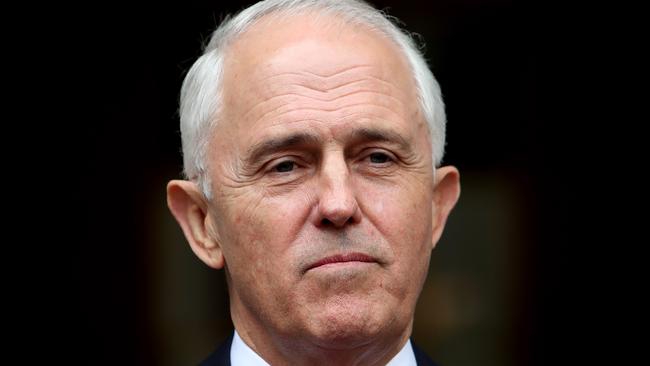
Malcolm Turnbull should call an early election, ending the chronic uncertainty that has hobbled policy and investment since the 2016 poll.
Another eight months of aimless government punctured by periodic leadership turmoil would be a ball and chain on the economy, something Australians can do without.
The Prime Minister had the courage to bring on a leadership spill. He should follow through by dumping his poisonous company tax-cut plan and redirecting the savingsto cut personal income tax further than currently proposed. In an era of wage stagnation and soaring asset prices, it’s workers, not foreign pension funds, who deserve a tax cut.
An election would focus Mr Turnbull’s detractors’ minds on winning their seats rather than destabilising his government.
An election would probably deliver a government without a one-seat majority, which could establish a policy platform with a reasonable hope of execution.
Faced with economic reality, a victorious Labor Party might not be as disruptive as some fear.
Or a winning Coalition could revive urgent reforms to tax, energy and the Federation that political weakness have forced the government to shelve.
Few would shed a tear for the 45th parliament, a dysfunctional menagerie whose chief legislative achievement was foisted on it by an obscure postal survey. Same-sex marriage is the Turnbull government’s most memorable structural reform.
An election would be a chance to end revolving-door leadership that for almost a decade has damped investment and confidence. Investors docked the Australian stock market 1 per cent yesterday, the biggest one-day fall in five months. The government’s cost of borrowing even rose a little, as questions about Canberra’s sanity ricocheted around the world’s trading rooms.
It’s the people who increasingly don’t have a say over the nation’s leader that feel the effects most. It’s the impact on ordinary businesses and households that leadership uncertainty affects most. Will negative gearing be revoked? How long will the tax cuts last? What about power prices?
The Coalition has achieved little. Of the three reasons it won government in 2013 — repaying debt, stopping the boats, and fixing energy policy — only one can be ticked off five years later. Debt has exploded. The carbon tax is gone but energy prices have skyrocketed.
Given its philosophy of small government, the Coalition has not moved to stop the superannuation guarantee rising to 12 per cent — a policy the royal commission is confirming as the single most illiberal, unfair, and inefficient piece of policy on the books.
If record jobs growth is a government achievement, so are stagnant wages. Unemployment is at record lows the world over.



